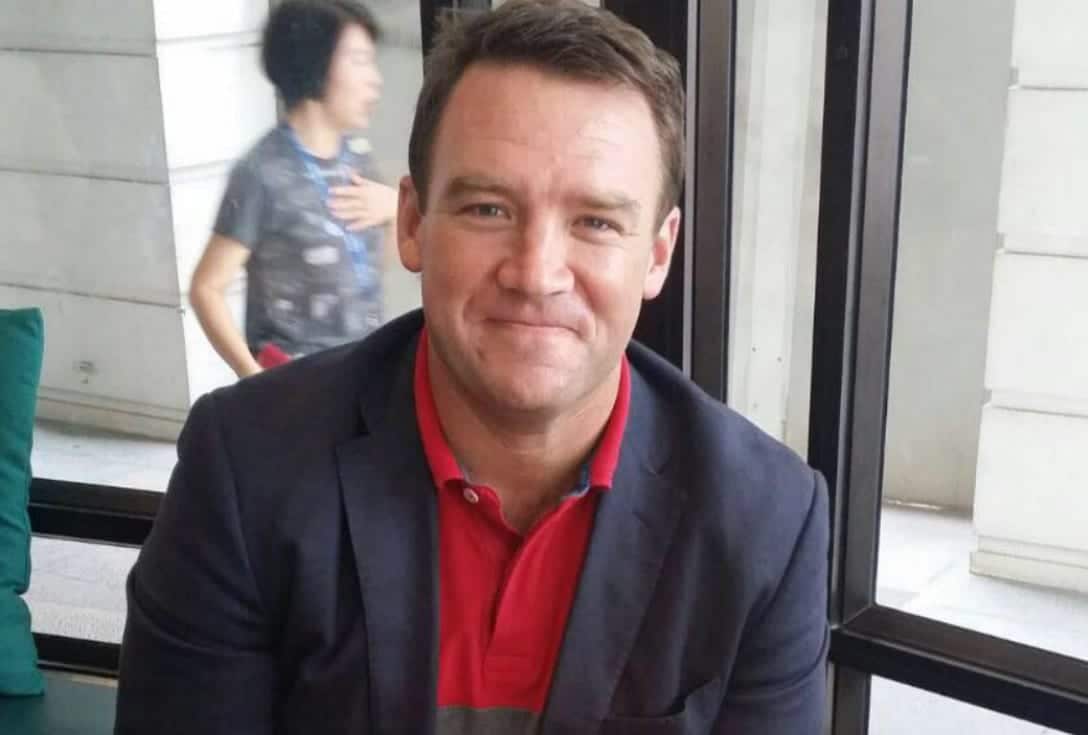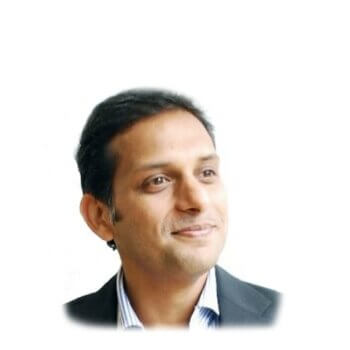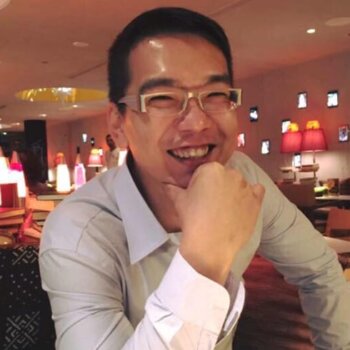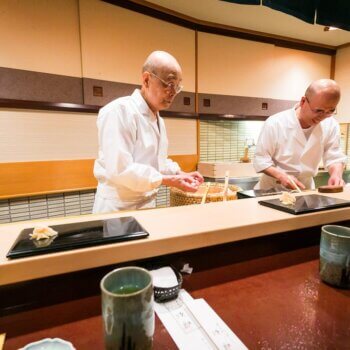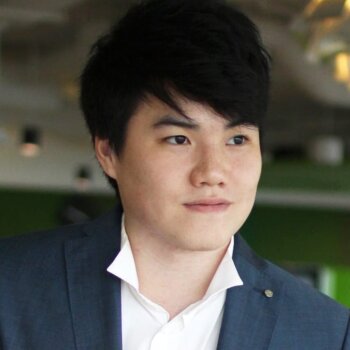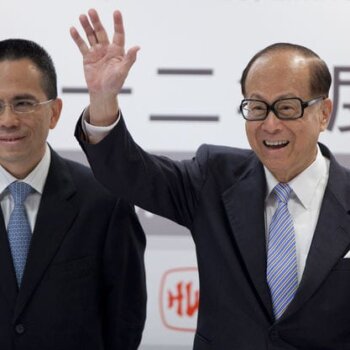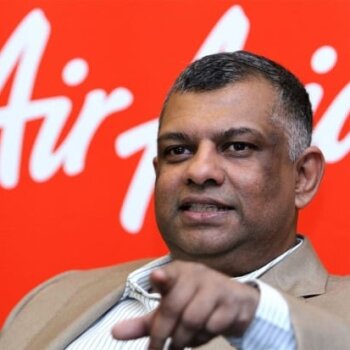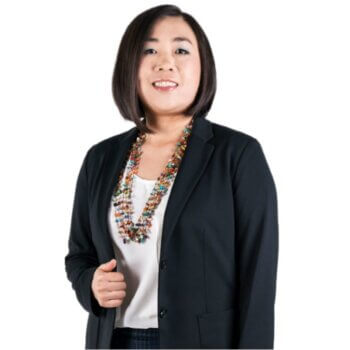With years of experience as a 5-star Hotelier, Chris Harris is reinventing education with the introduction of technology and focus on the perfect customer experience for every student.
What’s your story?
I’m the Executive Dean -Academic and Industry Engagement at Kaplan Singapore. This role means my team and I look after everything we provide to students to learn (the WHAT), the way we enable them to learn it (the HOW) and the relevance and transferability of this to their work and their life (the WHY). Our mission is to ensure we help students achieve both career and educational goals, and so the role is a marriage of my two loves, education and industry. They first came together for me when, after 6 years as a hotelier, I was gifted an opportunity in 2004 to teach as an adjunct lecturer while still a 5-star Hotelier. This is why I favour experiential education as a pedagogy in my own teaching.
What excites you most about your industry?
I’ve always been excited about creativity in both my hotel career and now in education. Sir John Bittlestone writes that ‘creativity is the ability to perceive relationships’ and so it is with creativity and innovation in education. I think about some of those great intersections at which we’re working now, including, but not limited to relationships between: technology and classroom teaching; industry reality and academic theory; student learning journeys and customer experience, to name but three. These relationships are appealing to me and the subjects of both my research and daily work with educators, students and staff.
I’m excited about learning more about learning and I think of all those previously mentioned intersections, the impact of technology on teaching and learning is very exciting because there is no one company or innovation that has won the space, but plenty trying and striving to find ways of keeping students engaged and learning. Specifically, blended learning, or the systematic combination of face-to-face and web-mediated education, has transformed our services to part-time working adults and we’ve developed a proprietary pedagogy around it called the Kaplan Way for (Blended) Learning.
However, over and above learning itself, education has a broader impact as the backbone of progress and in helping people find meaning and identity. The idea that we can influence generations of people is both immensely satisfying and very scary so we don’t take it lightly.
What’s your connection to Asia?
I grew up in multicultural Australia so have actually always felt Australasian. This feeling was enhanced by my surroundings and environment growing up in Sydney and then the Gold Coast. For example,the tropical aroma of our Malaccan hardwood furniture and other relics of my parents’ time in Malaysia and Singapore in 1970/’71, then later by getting to know my mother’s English students, who were mostly refugees from Vietnam, Cambodia and other ASEAN countries; and even later by associating with the Japanese community in my father’s hotel on the Gold Coast.
More recently the connection became more literal when, on a hot, humid KL night in 2010, I arrived with my wife and 13-month old daughter to begin our Malaysian chapter as the first Head of School, Berjaya University College of Hospitality, where we also brought into the World a Malaysian Madsaleh son. We moved to Singapore in 2012 and had an Ang Mo Singaporean daughter so we feel strongly connected.
Favourite city in Asia for business and why?
Singapore, because there’s a pragmatism that is very likeable here and that I find similar to Australia; you can meet millionaires in bermudas and t-shirts and there’s a willingness to get on with the job. What is peculiar to Singapore are the depth of relationships though and I’ve learnt a lot about cultivating partnerships of mutual benefit in Singapore and will be forever grateful for the lesson.
What’s the best piece of advice you ever received?
My second degree was in Literature so I can’t look past the first line of Fitzgerald’s The Great Gatsby: In my younger and more vulnerable years my father gave me some advice that I’ve been turning over in my mind ever since.”Whenever you feel like criticizing anyone,” he told me, “just remember that all the people in this world haven’t had the advantages that you’ve had.”
Who inspires you?
Can I name four? My father for bravely facing change and making a life as a successful hotelier after 27 years in the the army when he could have retired there, and for giving me an education when his own stopped at high school; my mother for being the greatest teacher I’ve ever seen, even to this day, and the person who gave me literature, the Beatles and empathy; and my wife, who is the greatest example of a super working mother, a superb cook and the most organised person on Earth. Lastly, outside of family, Perry Cross, a C2 quadriplegic, who is changing the world for people through spinal research.
What have you just learnt recently that blew you away?
I recently finished a thesis for Monash University that looked at the impact of lecturers’ use of online content in physical classrooms on their students’ use of online after class through a random, controlled experiment. It turns out that teachers’ agency still has an impact because the experimental group in which the teacher used the educational technology in class, averaged 50 more ‘clicks’ than those in the class where the same lecturer didn’t, and they also had a higher average post-test score. It blew me away because it reaffirmed the impact of teachers, even in a technologically-mediated learning environment, something that is unfairly maligned by hype over technology. Technology can amplify good teaching and need not necessarily replace it.
If you had your time again, what would you do differently?
No regrets as I’ve always worked for love not money, but if I had a time machine I’d go back to 1993, I’d stop and turn my body fully towards the ruck in that Under 16 representative rugby trial match and perhaps have saved a full knee reconstruction and played more and better rugby! That said, I’m quick to remind myself there are far more severe cases than my trivial knee pain; the great aforementioned Perry Cross, for one example, so I remain grateful for what I’ve had and now enjoy coaching my son.
How do you unwind?
Playing ball sports with my kids, fine dining with my wife, reading John Le Carre novels, and anything in the water.
Favourite Asian destination for relaxation? Why?
We’ve had great times in Khao Lak, Thailand. Why? Elephants, bamboo rafting, water and more water, good food, turtles and more good food, provided it’s the original recipe and they haven’t Farangified it.
Everyone in business should read this book:
Julius Caesar, by William Shakespeare to understand office politics
The Philosophical Foundations of Management Thought, by Jean-Etienne Joullié and Robert Spillane
Shameless plug for your business:
Kaplan Singapore is the answer to filling your learning gaps at any stage in your life as your integrated lifelong learning partner that offers training and education from the byte sized to full international degrees offered on-campus, for the young and young at heart, fresh school leavers to mid-career transitioners, individual learning tourists to corporate group trainees, and more.
How can people connect with you?
Best through LinkedIn: https://www.linkedin.com/in/chris-harris-22992928/
—
This interview is part of the ‘Callum Connect’ series of more than 500 interviews
Callum Laing is an entrepreneur and investor based in Singapore. He has previously started,
built and sold half a dozen businesses and is now a Partner at Unity-Group Private Equity and Co-Founder of The Marketing Group PLC. He is the author two best selling books ‘Progressive Partnerships’ and ‘Agglomerate’.
Connect with Callum here:
twitter.com/laingcallum
linkedin.com/in/callumlaing
Download free copies of his books here: www.callumlaing.com
